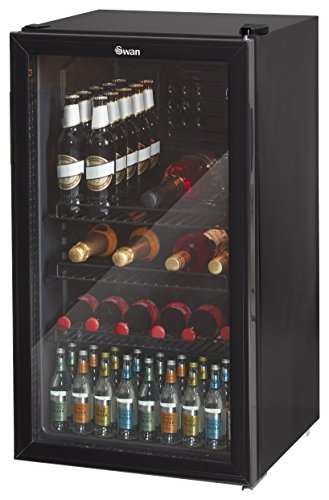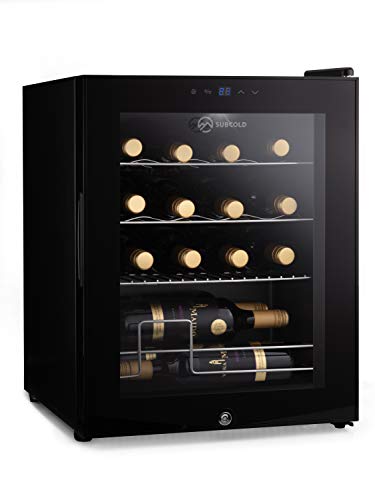What Will Beer And Wine Refrigerator Be Like In 100 Years?
페이지 정보
작성자 Lorrine 댓글 0건 조회 3회 작성일 24-12-12 06:55본문
 Choosing a Beverage and Wine Refrigerator
Choosing a Beverage and Wine RefrigeratorWhether you're hosting guests or just enjoying a relaxing glass of wine after a meal This dual-zone refrigerator is the ideal solution to keep and chill both wine and beers. It can be freestanding or built-in, and has an aesthetically seamless door that fits in any space.
While vibration is generally safe but it can disrupt the sediment in a bottle and trigger complex chemical reactions that are not evident. This can dull the flavor and reduce esters over time.
Humidity Control
Humidity refers to the amount of water vapor that is present in the air. It changes throughout the day due to a number of factors. Temperature, precipitation and wind can all have a dramatic impact on the humidity levels. It is important to maintain humidity at an optimal level for many reasons. The humidity affects the weather patterns and indoor air, as well as wine storage. Many aromatic compounds in wine are affected by humidity changes. The taste of a wine fridge small can be affected by high humidity. It can alter the balance of these aromatic compounds. A wine refrigerator can help to maintain the right humidity level to preserve the wine's flavor.
A wine refrigerator can also help prevent the deterioration of corks as well as ensure the proper seal. When humidity is too low, corks can dry out and let oxygen enter the bottle, speeding up the aging process and tainting the wine's flavor. A wine refrigerator can help keep a humidity level of 55%-75 percent to prevent this from occurring.
Wine coolers are also a great option to store beer and wine. A wine cellar is primarily made for long-term storage. These units often have dedicated areas for beer bottles, so you can keep your favorite craft beers or lagers right alongside your favorite wines. They also come with efficient designs that regulate temperatures and humidity to avoid condensation that can damage labels or packaging.
Most models come with a hygrometer, which allows you to monitor the humidity level of your wine fridge cooler cooler and adjust it in line with the level. You can also use a humidifier to increase the humidity of your wine refrigerator.
If you decide to use a Wine Chillers For Sale fridge, place the dehumidifier in a space that is separate from it. This will prevent the dehumidifier from absorbing any beer or wine that you store in the refrigerator. If you intend to store your wine for a long period of time, controlling the humidity is crucial. In a short amount of time, you might not notice any changes in your wine, however over time, a lack of humidity can significantly alter the flavor profile of your wine.
Vibration Absorption
Vibrations inside the wine fridge may affect the natural aging of the stored wines. Even tiny vibrations can cause sediment to move inside the bottle, triggering complex chemical reactions that can reduce esters and dull the wine's flavor over time. To safeguard your valuable wine collection, all La Sommeliere units are equipped with a unique vibration absorption system that significantly reduces the impact of tremors and noise. It also ensures that your wine ages properly and quietly.
Apart from the fact that wine coolers typically emit less sound than normal refrigerators, they are predisposed to noise issues due to the arrangement of refrigerant circuits and fan systems used in the majority of units. It is important to follow the guidelines for clearance and put your wine cooler in a quiet space far from any other sources of noise.
It is also recommended that you clean your wine cooler regularly with a nonabrasive cleaner. let it "air out" for several minutes prior to filling it up with bottles. This will reduce the amount of dust and dirt that can accumulate in the air vents.
Finally, if you notice that your wine refrigerator is making a lot of noise, it could be because of an electric fan that isn't working or the compressor. The compressor is typically situated at the back of the wine refrigerator. If it is positioned unevenly or hits something behind it, it could shake itself loose from its rubber mounts, which can produce loud humming sounds.
The compressor wine cooler operates like a standard fridge by compressing air molecules electronically, which decreases their temperature. They then blow through the interior of your fridge. This kind of cooling is more efficient in energy use than other types of cooling such as evaporator and frost-free refrigerators. The drawback of compressor wine coolers is that they require frequent repairs and produce more noise than other types of refrigerators. Because of this, many people opt to purchase thermoelectric wine coolers which don't make use of compressors.
Control of Temperature
Wine, as well as beer, requires specific temperatures to ensure its flavor is maintained. It is essential to choose the right wine and beverage refrigerator that has adjustable temperature controls. This allows you to keep your beverages at the perfect serving and storage temperature for each type. You can also find dual zone models that offer an additional temperature zone for wine bottles as well as separate temperature zones for other beverages, such as beer.
In general, beers are served colder than wines. The ideal temperature to serve the particular style will depend on the type and the method of making it. Wheat beers and pilsners ought to be served between 40 and 50 degrees Fahrenheit, while IPAs, barleywines and stronger ales are best served at 50 to 55 degrees Fahrenheit. Letting a beer warm up too much can give it an unpleasant "skunk" smell that can detract from the overall drinking experience.
You'll need a wine fridge with a temperature range suitable for your favorite whites and reds. Certain wine refrigerators come with humidity-control features to keep the wine from oxidation and to keep the corks in good condition. Some wine refrigerators come with a UV-blocking glass specifically designed to prevent sunlight from affecting the wine refrigerator mini and causing it to age prematurely.
The temperature control system in a refrigerator can be powered by compressor technology or thermoelectric cooling. Compressor units use vapor compressors to reduce temperatures in the wine refrigerator, while thermoelectric models make use of electronic convection fan technology to circulate cool air throughout the refrigerator. For the best results, many refrigerators use both of these technologies.
If you're considering buying an appliance for wine and beverages that utilizes compressor technology, you should look for one that has shock pads that absorb vibration. This is because the rumble caused by compressor-based operation can interfere with the normal maturing process of wine fridge cooler and accelerate the process of oxidation.
There is a possibility of buying a refrigerator designed for wine. However, it may be more economical to buy an ordinary fridge or a regular refrigerator with a spacious interior and movable shelves. You can modify the space to accommodate a variety bottles and cans, which include beer, wine and other drinks.
Storage Options
If you love hosting parties and have a wide range of drinks to serve, consider a beverage cooler. These refrigerators can be used to store bottles and cans of wine, beer and other ice-cold beverages like soda and water. They're available in freestanding and built-in versions. Built-in models can be integrated into cabinets or under counters in kitchens that have small space.
The two types of refrigerators are available in different sizes and styles that make them ideal for most homes. Find models with sliding shelves to make it easier to find your preferred beverages and wines. Some refrigerators come with soft LED lighting that can show off your collection in a soft, gentle glow. Some even offer the option of controlling humidity. This feature can stop frost from forming in your wine and beer bottles so you can enjoy them without worry.
A refrigerator with two zones will allow you to store your favorite wines at their ideal serving temperatures. You can also utilize the separate zones to store your craft beer as it typically has the same ideal temperature ranges to an wine bottle. A dual zone beer and wine refrigerator can also store larger bottles of beer or spirits than a standard fridge.
Keep your beer and wine in an area that offers light protection. The proper conditions will extend their lifespan. Keep your refrigerator free of odors and dust that can affect the taste of your beverages.
If you're keeping a large collection of wines and want to preserve their quality, think about the cellar refrigerator. This kind of refrigerator is made for long-term storage. It operates at a temperature that is slightly higher than a wine fridge, which lets your wine bottles age to their peak flavor. A cellar refrigerator also has a humidifier that maintains the right humidity level. This ensures that the cork is kept moist and impermeable, preventing the outside air and notes from refrigerator food from entering your wine bottle, and deteriorating its quality over time.

댓글목록
등록된 댓글이 없습니다.